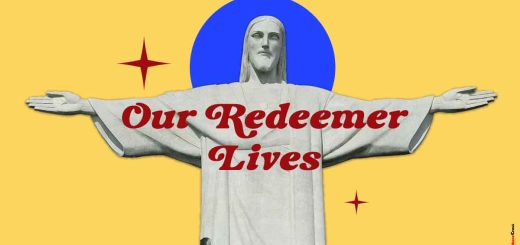Theology for the People

Joel Nuniz/unsplash
Have you ever stopped to consider how different your views and ideas would be if you had grown up in another part of the world? Think about it: if you had grown up in the Middle East, you would probably be a Muslim. Since that is the dominant religion in that area, it is likely that you would have inherited those beliefs.
To many Christians, the term ‘theology’ may sound academic and intimidating, but we are all doing theology when we try to understand our faith, as Craig Dunsmuir explains.
Similarly, if you grew up in India, you are quite likely to have become a Hindu. Most of the world’s Hindu population lives in India, and about 80% of the country’s population adheres to that religion, so there is a good chance you would be one too, had you inherited those beliefs in your childhood.
The truth is that every one of us has a certain inherited or “embedded” theology. We learned to view the world in a certain way, through the influence of our parents or guardians, siblings, grandparents, teachers, church leaders, and so on. As children we rarely question the things we are taught, and so each of us comes to understand things in a very similar way to the way in which it was taught to us.
Two Christian writers, Howard Stone and James Duke, put it this way: “Christians learn what faith is all about from countless daily encounters with their Christianity — formal and informal, planned and unplanned.”
Our embedded theology is often a great comfort to us. It is very helpful for most of our lives. Having been taught that God is with her in all her ups and downs, Thandi finds strength to go on during tough seasons of life. Having been taught that stealing is sinful, Joe resists the urge to help himself to his company’s money. Their embedded theology, their learned way of seeing God in the world, guides them in how they live.
But then something comes along to make us question the theology we learned. Thandi’s daughter dies in a tragic car crash, and she wonders: “Where was God in that moment? If God was with my daughter, why did God not save her?” And Joe is asked by his boss to cover up some financial misdeeds in the company’s books, or else lose his job. He thinks to himself: “There are no jobs out there, I can’t afford to lose this one. Should I do what the boss wants so that I can continue to feed my family? What is the godly thing to do here?”
Suddenly, Thandi and Joe’s embedded theology is not sufficient to deal with the circumstances in their lives. They need something deeper.
In the end, many people give up on their faith because their embedded theology does not provide the help they need as they face life’s challenges. Our embedded theology can also be challenged when we face moral or social questions.

Timothy Eberly/unsplash
Think of recent attention-grabbing or controversial headlines which you have seen in the news or on social media. Chances are strong that you have a firm opinion on each of these topics, and that they make up part of your embedded theology.
You might even feel quite certain that these are simple yes/no answers — but ask yourself, have you ever taken the time to think seriously and carefully about these issues? Or have you simply inherited the belief that these issues are either wrong or right, and left it at that?
What is the alternative to embedded theology? It is moving to a place of deliberative theology. Uncertainty over moral and social issues, or a crisis moment in our own lives, or a major impact that disrupts things, may lead us to begin questioning our embedded theology. Once we do that, and start to seek deeper understanding of these issues, we have begun to develop a deliberative theology — a common definition of theology is “faith seeking understanding”.
Stone and Duke go on to tell us that deliberative theology comes about by “carefully reflecting upon embedded theological convictions”. Instead of simply falling back on the old understanding of faith that we always had, we begin to seek deeper answers. We speak to various people, read a range of books, listen to teachers. We try to discern whether or not there are other helpful ways to understand the issues we are facing.
Using our examples from above, Thandi could either abandon her belief in God altogether as a result of her loss, or she could begin to deliberate on her faith. She could start to talk with others, read, and wrestle with the fact that perhaps her embedded views on God as the ultimate Protector weren’t a full understanding of God or our world. Perhaps tragedy can happen in this life without diminishing the love and care of God for his children. Perhaps God also weeps at the injustice of losing a child. Her faith begins to deepen — even if she doesn’t have the full answers she needs. But she is seeking deeper understanding and holding on to God as she wrestles.
Joe too wrestles with his faith as he considers his dilemma. Instead of abandoning his faith and taking an easy road out, he searches for a deeper understanding of the Christian’s moral duty. Perhaps God does have a way out for me here, he thinks. Perhaps the answer is not quite as easy as it seems. And so he prays, asks advice from trusted Christian friends, and begins to read about “situational ethics” to try and understand what the right move for him will be. Instead of just making a snap decision, he is seeking deeper understanding.
Thandi and Joe are both becoming deliberative theologians. They are both starting to think deeply and seriously about the issues they face.
The short article above is an extract from a course at TEE College that helps new students engage the all-important work of being theologians through learning new and helpful skills.
Churches and institutions of learning are able to provide resources and courses of study that help Christians make an impact in their world through their Christian faith. Whether we are responding to big issues and debates around us or are simply faced with challenges in our lives, how do we respond? Are we seeking to grow in our understanding and love of God so that we each can make practical and meaningful responses that witness to the power of Christ in our midst?
Craig Dunsmuir is the principal of the Theological Education by Extension College.
TEE close their admissions in April. For courses offered by TEE College contact www.tee.co.za or email .
- Newly-Elected Parish Council Chairpersons Meeting in Cape Town - November 12, 2025
- Catholic priest ‘writes what he lives’ in new book on Palestine/Israel - November 11, 2025
- Schoenstatt Shrine Golden Jubilee – Homily by Fr Michael Hagan ISch - November 10, 2025




